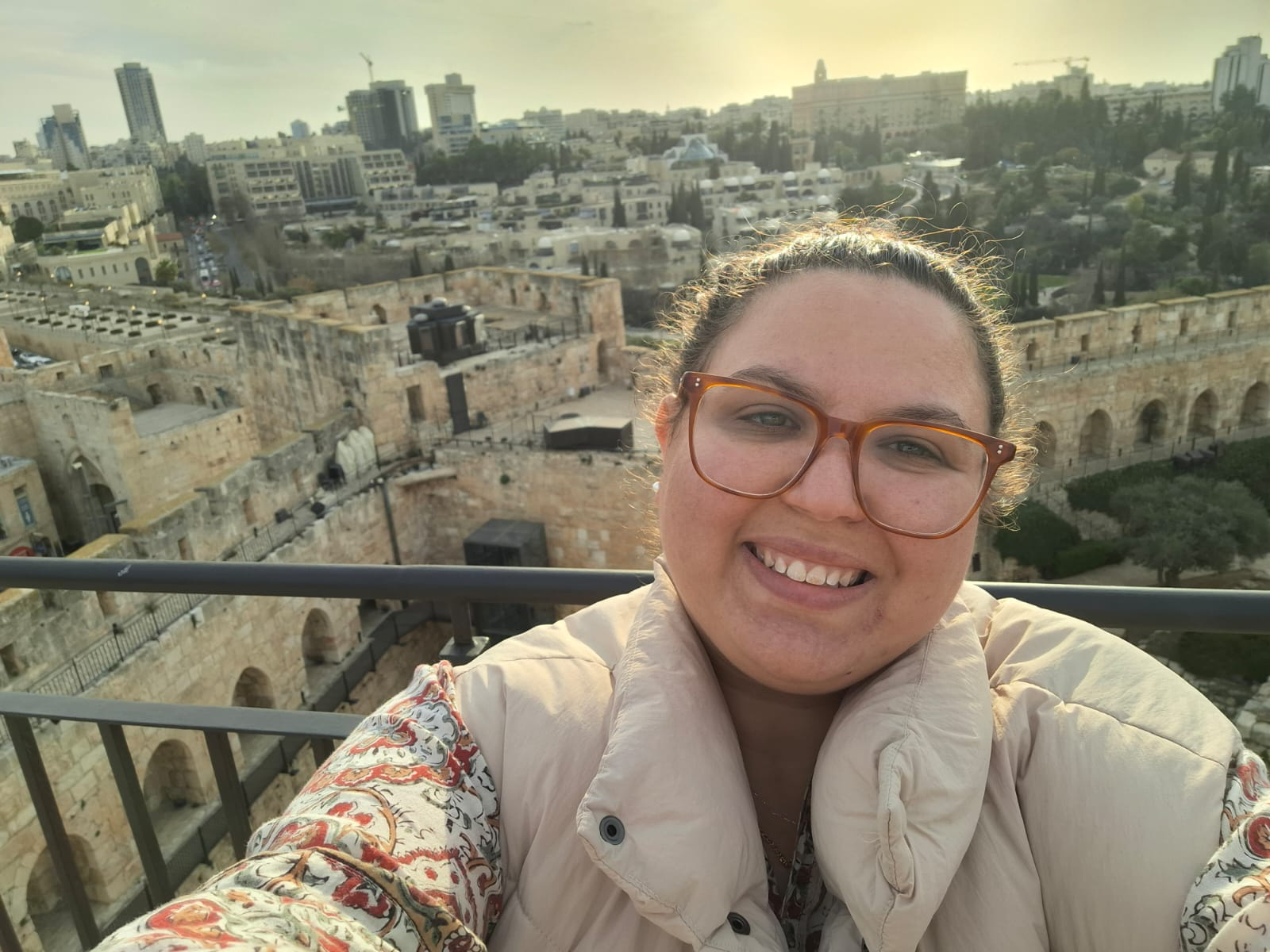
Get The AJN Newsletter by email and never miss our top stories
Free Sign Up
In my 31 years on earth so far, on Shavuot, I have never missed hearing Aseret HaDibrot, the 10 Commandments.
I’ve built my life around Torah, I am a Jewish educator, and have taught in different schools and seminaries for over a decade, so I take my Judaism seriously. For me, going to shule over a Jewish festival is an affirming ritual and an embodiment of the Torah I teach and the values I live with.
Growing up in Melbourne with our long winter nights, Tikkun Leil is always a highlight. I like the idea that everyone is spending the night studying Torah, making it relevant to their life and preparing to receive the 10 Commandments. In my mind, Tikkun Leil means synagogue hopping, the streets alive with learning, and that palpable sense of anticipation for something big. After all, you only receive the Torah again once a year.
For a few years I lived in New York, but unlike Melbourne, Tikkun Leil takes place in the summertime. Shavuot looked different, long summer afternoons, dairy potlucks in the park in the heat, time spent with good friends, but little in the way of meaningful Tikkun Leil. Because it starts so late, Tikkun Leil does not have the wide appeal.
So, after a few years in America, I discovered that going to shule to hear the Aseret Hadibrot without the deep night of learning beforehand, with hours of preparation in our winter, to me, felt incomplete.
However, this year, on Sunday morning, erev Shavuot, after waking early to beat the crowds at Coles and finish my Yom Tov preparation, I suddenly felt it. That awful familiar zap of sharp, burning nerve pain. I’ve had a bulging disc in my back and the pain is simply excruciating.
Knowing that this pain can escalate and become completely debilitating, I lay down, hoping it would pass. But it didn’t.
The pain continued with a vengeance, and almost all at once, I became completely immobile. Even trying to stand was unbearable. The pain is so bad it feels like being stabbed concurrently by glass and knives as it runs down the sciatic nerve from my lower back down to my ankle.
Soon, as the pain was escalating without stopping, I knew there was no chance of experiencing the Shavuot I had wanted.
I cancelled my plans. I hobbled to the couch to be near my family for the seudat Yom Tov. My mother brought me a candle to light, to usher in Shavuot while I was lying down, trying to relieve the pain in my back. I was heartbroken because I could not go to any of the fun meals I had planned, I couldn’t go to Tikkun Leil and I certainly would not make shule for the Aseret HaDibrot.
At first, it felt like a loss. I cried real, bitter tears. For me, chag is a time of togetherness, family, friends and connection and here I was, sore and in pain, unable to join in.
For me, Shavuot is about presence. About standing together at Mt Sinai. And yet, I was, in too much pain to stand for candle-lighting, too sore to dress nicely, and unable to even hold a siddur without wincing.
The pain grew so intense, I had no choice but to lay down flat on the floor. And it was there, on the floor, that I heard Kiddush, that I ate, and that I learned Torah with a friend.
On the first day of Yom Tov, after a sleepless, tear-filled night spent praying for the pain to lift, I couldn’t even make it downstairs. I knew that if the pain didn’t soon abate, I would need to go to hospital.
Despite the pain, just as every Jewish soul stood at Sinai, I refused to miss out.
I opened my Chumash to Parshat Yitro and began to read aloud, mustering whatever energy I had left, to read the verses of Matan Torah and the Aseret HaDibrot. When I finished reading the 10 Commandments, I said to myself: Mazal Tov!
Despite the difficulty of my situation, it finally felt that the Torah was mine once again.
Although I ended up in hospital the next day and eventually got the pain relief and treatment I needed, I still look back on this Shavuot experience somewhat fondly. Not for the pain I experienced, but for the clarity it brought. The way that I was still able to experience some of the specialness of Shavuot in the ways that I could, despite my situation.
I am comforted by the verse in the Torah that reminds me that I have a right and a responsibility to care for myself. To honour my limits. “וְנִשְׁמַרְתֶּם מְאֹד לְנַפְשֹׁתֵיכֶם” guard your soul, your health, your life (Devarim 4:15).
This is the essence and truest gift of the Torah.
So while this year, I received the Torah on my bedroom floor, somehow, in the pain and the quiet, it felt more real than ever.
Leah Groner is a community builder and Torah educator in Melbourne.